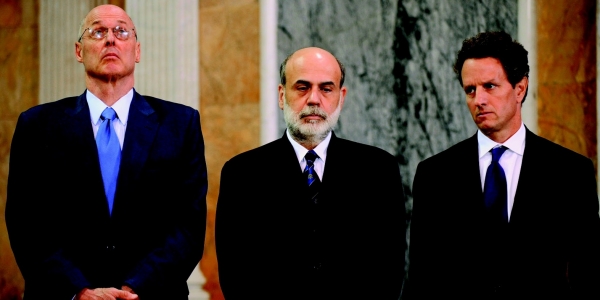Although the title suggests a heist thriller, Inside Job instead offers a fascinating, eye-opening exploration of the global financial crisis of 2008 and the root causes. Inside Job is a meticulously researched and incisive documentary that reveals alarming facts and figures about the causes of the global financial crisis. Ferguson clearly points the finger at the systemic corruption of the venerable Wall Street institutions.
Although the title suggests a heist thriller, Inside Job instead offers a fascinating, eye-opening exploration of the global financial crisis of 2008 and the root causes.
This documentary comes from Charles Ferguson, whose previous film was 2007’s No End In Sight, a blisteringly honest exploration of the war in Iraq and a fierce criticism of the Bush administration’s conduct of the war. Ferguson has a doctorate in political science, and his research is always impeccable and his arguments compelling. The film covers some of the same territory as Michael Moore’s Capitalism: A Love Story. But unlike Moore, who often goes in for grandstanding and showboating stunts, Ferguson goes for the jugular.
Inside Job is a meticulously researched and incisive documentary that reveals alarming facts and figures about the causes of the global financial crisis. Ferguson clearly points the finger at the systemic corruption of the venerable Wall Street institutions. The film is also a savage indictment of the policy of deregulation, which gave financial institutions a licence to speculate with currency, make dubious loans, and engage in shady financial practices that resulted in the bankruptcy of major firms.
Ferguson is a subtle but persistent inquisitor, who gives his subjects enough rope to hang themselves on camera. He often captures their guilty reactions or evasive answers on camera. The experts who were the architect of the deregulation policies blatantly refuse to admit to a conflict of interest even though they advised the boards of these venerable financial institutions, and were handsomely rewarded for their advice.
Significantly, many of the key players and architects of this policy all declined to be interviewed for the film. And, as he points out, no one has yet been prosecuted for fraud.
Ferguson opens the film by drawing a parallel with Iceland, a small but financially stable country with a healthy economy until the banks were deregulated in 2008. Almost overnight the country was turned into a financial basket case. The small local banks borrowed several billion dollars from overseas, firms collapsed, and unemployment went through the roof. And the US economy, one of the biggest in the world, ignored the warning signs.
Matt Damon narrates in no-nonsense fashion, and his authorative tones lend credence to the onslaught of eye opening facts and assertions. There is a lot of information about derivatives, credit swaps, subprime loans, hedge funds, but Ferguson cleverly manages to wade through this minefield of technical terms and makes it easily understandable even to us laypeople.
Ferguson’s sense of anger and outrage comes across clearly, any by the end of the film you too will be incensed that this financial crisis happened.

